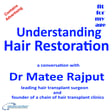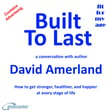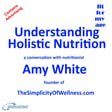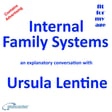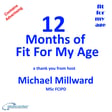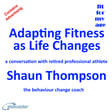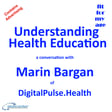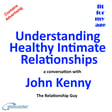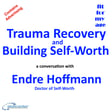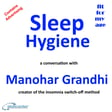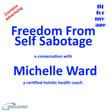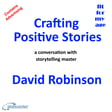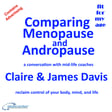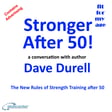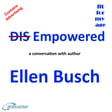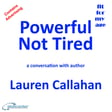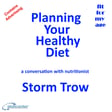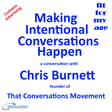
Enhancing Fertility Through Functional Medicine - a conversation with author Jaclyn Downs
Jaclyn Downs is a Functional Nutrigenomics Consultant at Nutrigenetic Research Institute and author of "Enhancing Fertility through Functional Medicine: Using Nutrigenomics to Solve 'Unexplained' Infertility" (Taylor & Francis, 2023).
In this episode of the Abeceder health and wellbeing podcast Fit For My Age Jaclyn and host Michael Millward start their conversation by discussing the relationship between our lifestyle choices and our gene health.
They discuss how exposure to toxins and micro toxins can trigger reactions within our genes and how both physical and emotional stress impacts gene health.
Understanding gene health can lead to improved performance during health events like Go Sober This October which is organised by MacMillan Cancer Support .
Jaclyn explains how awareness of our gene health impacts our fertility.
Find out more about Michael Millward and Jaclyn Downs at Abeceder.co.uk.
Audience Offers
Proactive Positive Ageing.
We recommend The Annual Health Test from York Test, because knowing the risks early means you can take appropriate actions to maintain good health.
An experienced phlebotomist completes a full blood draw at your home or workplace, so that 39 different health markers can be assessed in a UKAS-accredited and CQC-compliant laboratory.
A Personal Wellness Hub gives access to easy-to-understand results and guidance to help you make effective lifestyle changes.
Visit York Test and use this discount code AGE25.
Fit For My Age is made on Zencastr, because Zencastr is the all-in-one podcasting platform, that really does make creating content so easy.
If you would like to try podcasting using Zencastr visit zencastr.com/pricing and use our offer code ABECEDER.
Travel Members of the Ultimate Travel Club enjoy travelling at trade prices on flights, trains, hotels, holidays and so many other travel related purchases. Use the link to access discounted membership.
Matchmaker.fm If you are a podcaster looking for interesting guests or if, you have something interesting to say Matchmaker.fm is where great hosts and great guests are matched and great podcasts are hatched. Use our offer code MILW10 for a discount on membership.
Being a Guest
If you would like to be a guest on Fit For My Age, please contact using the link at Abeceder.co.uk.
We recommend the podcasting guest training programmes available from Work Place Learning Centre.
We appreciate every like, download, and subscriber.
Thank you for listening.
